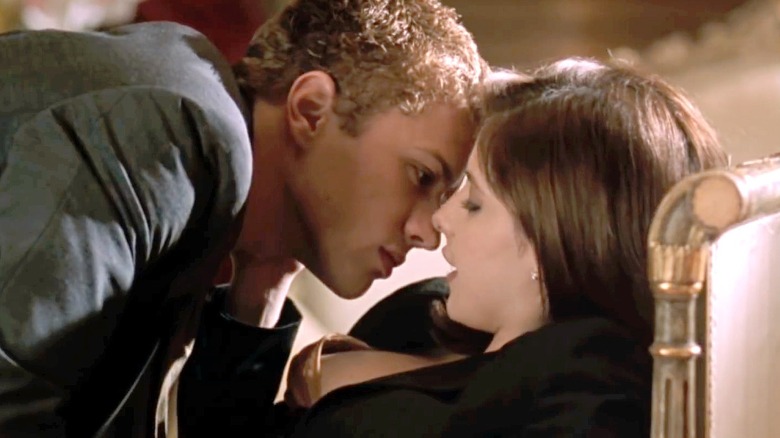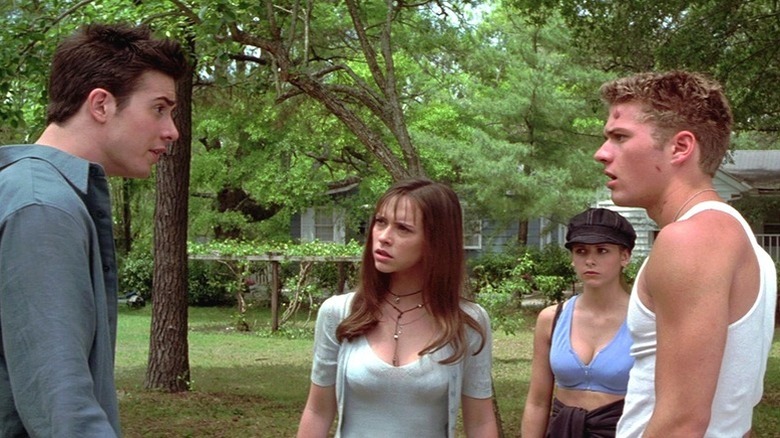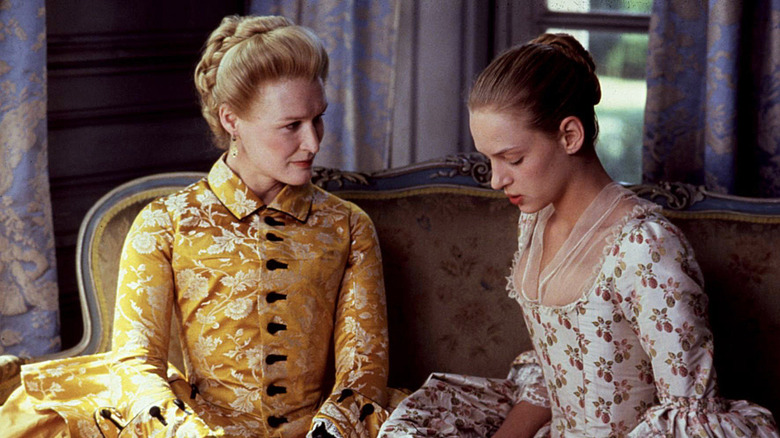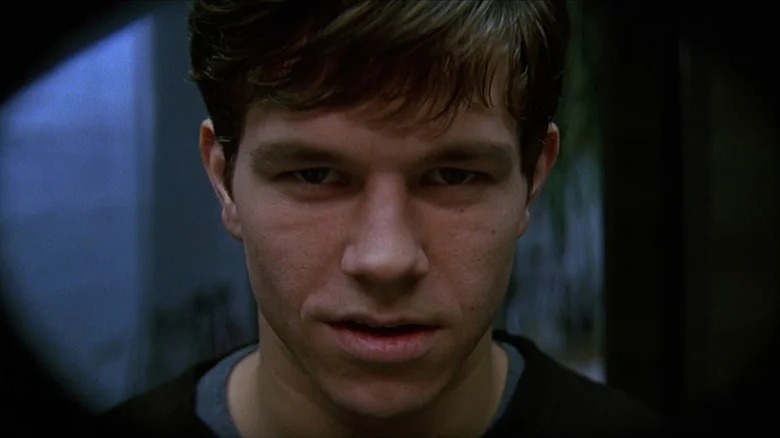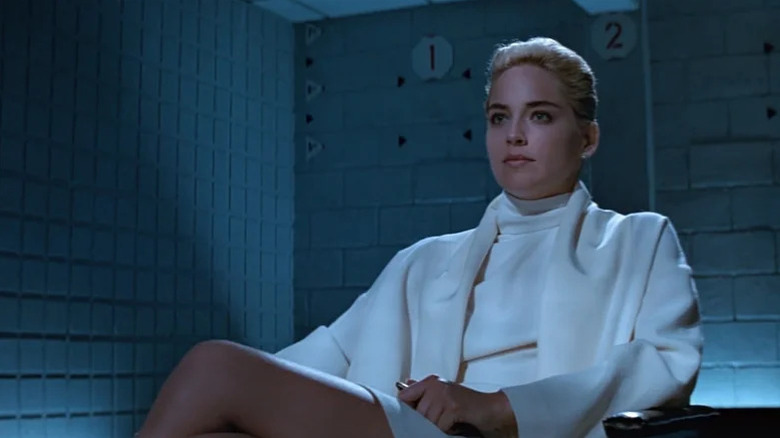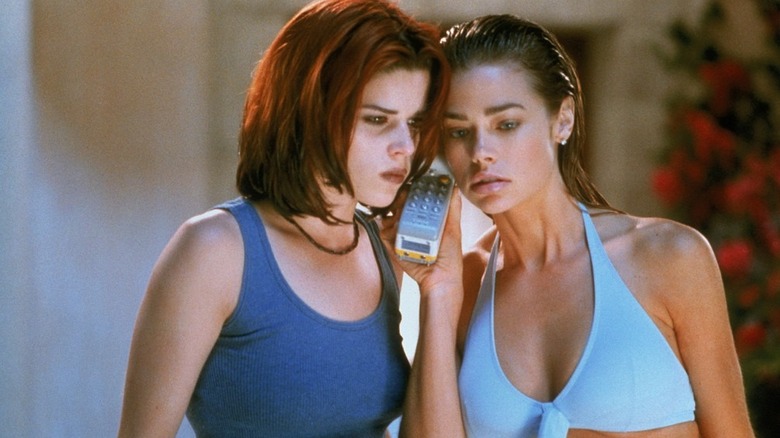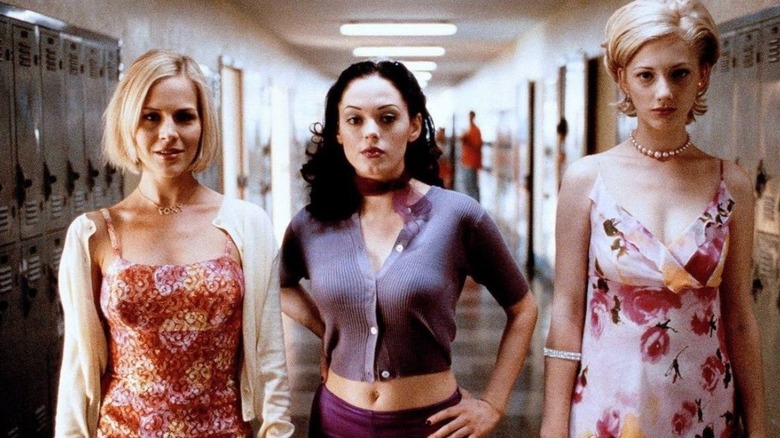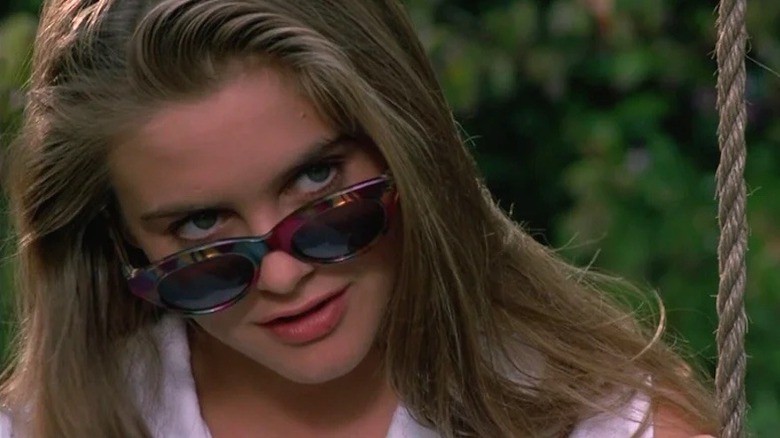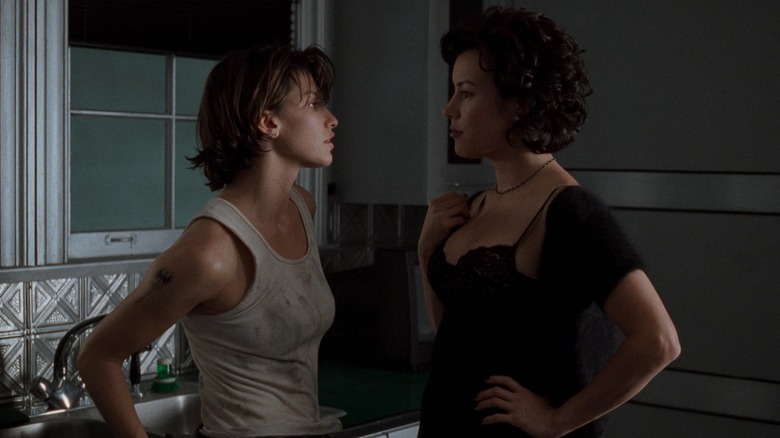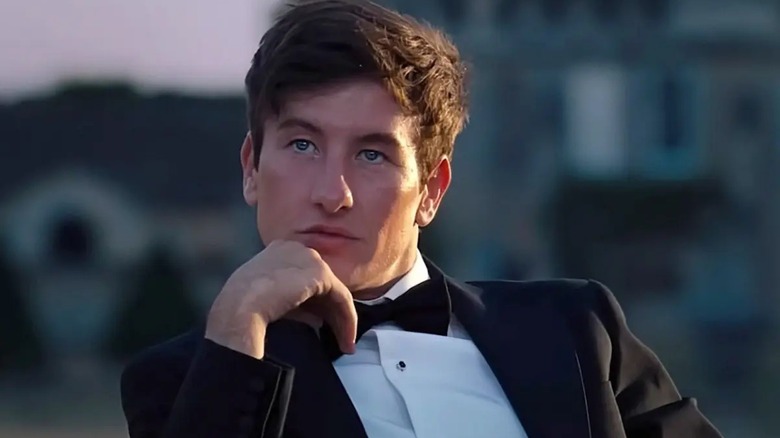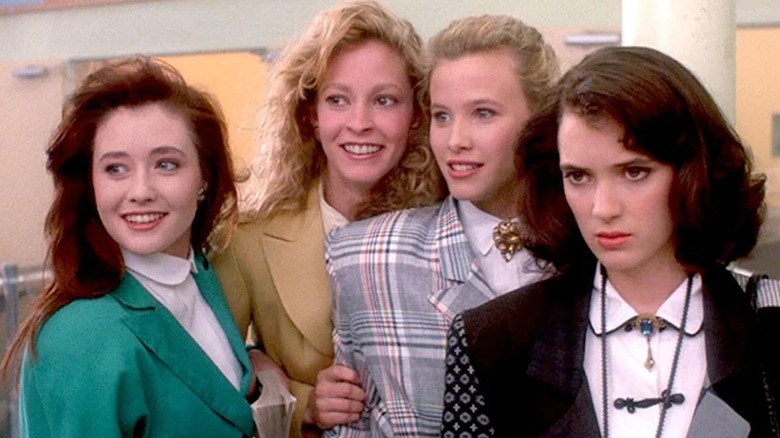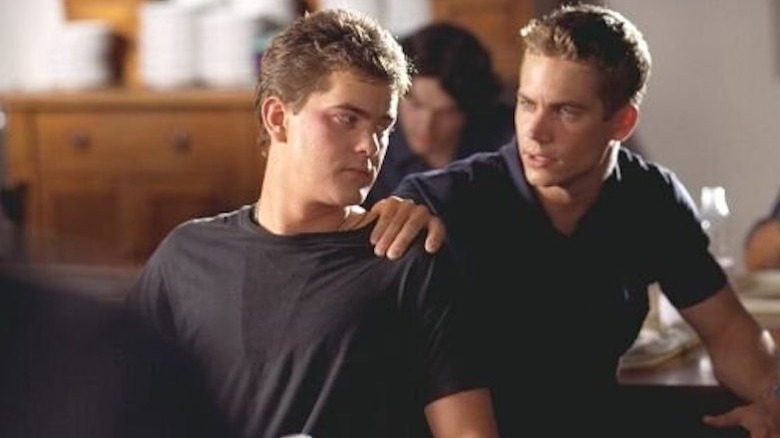When “Cruel Intentions” came out in 1999, Reese Witherspoon, Ryan Phillippe, and Sarah Michelle Gellar were riding a wave of Young Hollywood success that would take them all the way to the industry’s A-list. The film — an indie picked up by Columbia Pictures — was a modest box-office success at the time based on its shoestring budget. It sent ripples through the movie industry for its spot-on casting and scandalous psychosexual storyline that put a gleefully trashy spin on “Dangerous Liaisons.” It has since moved into ”90s cult-classic territory, spawning a mini-franchise that includes two sequels and a short-lived contemporary TV series.
In the original “Cruel Intentions,” two savage step-siblings (Phillippe and Gellar) who attend an elite Manhattan prep school make a callous bet to deflower the new headmaster’s daughter (Witherspoon) after she publicly reveals her plan to stay a virgin until marriage. If the sister wins, she gets her brother’s beloved Jaguar. If the brother wins, he gets to have sex with his stepsister. In the end, they both wind up getting caught up in way more than they bargained for.
The pop-culture time capsule of a film represented a shift in what teenage and young adult audiences wanted to watch — darker, salacious fare that was more illicitly thrilling than what was typically served up to those moviegoers at the time. Of course, in retrospect, some of its storyline hasn’t aged well, some 25 years later, but there’s still something to be said about a pretentious bad girl snorting cocaine from a rosary while her cad of a stepbrother does her dirty work in a conquest for sex. Once you revisit the lascivious cult classic that is “Cruel Intentions,” you may crave more scandalous teen fare or depraved psychosexual thrillers from the era, for which we offer this list.
I Know What You Did Last Summer
Also starring Ryan Phillippe and Sarah Michelle Gellar alongside Jennifer Love Hewitt and Gellar’s future husband, Freddie Prinze Jr., 1997’s “I Know What You Did Last Summer” helped modernize slasher films by incorporating the type of teen drama popularized in the 1990s into the horror genre. The movie follows four friends who hit and presumably kill a man while drunkenly joyriding one night. The group drags his body into the water and make a pact to keep the incident a secret — until one year later, when a mysterious figure wielding a fisherman’s hook terrorizes the group, picking the perpetrators off one by one as an act of revenge.
The movie catapulted Hewitt to household name status, taking her “Party of Five” fame to the next level. Meanwhile, the success of “I Know What You Did Last Summer” most likely helped “Cruel Intentions” take off, as Phillippe and Gellar played entangled lovers involved in an impossible situation in both. The film has since turned into a franchise that has spawned two sequels, a (disappointing) 2025 reboot, and a short-lived TV series.
Dangerous Liaisons
More than a decade before “Cruel Intentions” came the 1988 movie adaptation of “Dangerous Liaisons,” which was based on the 1985 Royal Shakespeare Company play “Les Liaisons dangereuses” that was, in turn, adapted from the 1782 novel of the same name by Pierre Choderlos de Laclos. The film is said to have greatly influenced the salacious 1999 teen drama that features a very similar but modernized storyline.
Starring Glenn Close, John Malkovich, and Michelle Pfeiffer, “Dangerous Liaisons” is a flamboyant period piece that revolves around former lovers (Close and Malkovich) playing a sinister game of powder-dusted sexual manipulation in 18th-century France. It’s a tale of convoluted conquest over a soon-to-be-married virgin (Uma Thurman) that turns chaotically enthralling by the film’s bitter end.
Highly revered and critically acclaimed, “Dangerous Liaisons” won several Academy Awards and became a pop-culture centerpiece at the time. It also put its main cast — which also included Keanu Reeves — on the fast track to becoming Hollywood powerhouses and achieving everlasting fame.
Fear
After making a splash in Hollywood with his 1994 acting debut in “Renaissance Man,” former Funky Bunch rapper-turned-underwear model Mark Wahlberg landed his first leading role in 1996’s “Fear,” in which he courts and then stalks Reese Witherspoon’s virginal underage character.
The psychological thriller sees a well-to-do family’s seemingly perfect life turned upside down when their teenage daughter (Witherspoon) starts dating an older, too-good-to-be-true mystery man (Wahlberg) who turns out to be violently obsessive. To this day, the wildly sexual rollercoaster ride that the pair takes together in the film probably still stands out in the minds of moviegoers of a certain age. It was so intense that it sparked still-unconfirmed rumors that Wahlberg and Witherspoon dated at the time.
Despite being panned by critics, the movie became a sleeper hit and eventual cult film, helping launch Wahlberg’s long-standing acting career. In fact, he followed up this movie with one of his most critically acclaimed performances: 1997’s porn-centric “Boogie Nights.”
Basic Instinct
While it doesn’t revolve around teenagers, “Basic Instinct” has everything teen-drama fans might crave, just with older faces. Released in 1992, the psychosexual thriller follows a detective (Michael Douglas) investigating a sexually charged murder that leads him into an intense relationship with the prime suspect (Sharon Stone). As both his suspicions and desire grow, he’s caught in a dangerous game of cat and mouse that leaves him questioning the reality of the situation.
The erotic thriller’s lasting legacy is most likely the unexpected footage of Stone suggestively uncrossing her legs, which was an unheard-of concept at the time for mainstream cinema and highlighted how the groundbreaking depiction of sexuality the film offered stunned moviegoers who filled the theaters. Some three decades later, Stone is still trying to outrun the film’s infamous scene’s impromptu star-making moment when she flashes her bare crotch to the audience, a move she says she was tricked into doing by the director.
Wild Things
Like many “Cruel Intentions”-esque films, “Wild Things” may not pass the political-correctness litmus test when it comes to some modern-day audiences. But it was considered devilishly good fun when it was released in 1998 as yet another elaborate tale of deception coupled with teenage sexual discovery. This time, though, the story involves two female leads (Neve Campbell and Denise Richards) who accuse a high school guidance counselor (Matt Dillon) of sexual misconduct. The teens’ allegations end up launching a police investigation that uncovers an intricate web of lies — but who’s deceiving whom?
The film’s campiness is layered thick with over-exaggerated plot twists and hypersexualized girl-on-girl interactions directed at a mainstream audience that wasn’t used to seeing such things portrayed on the big screen. It works because, despite its somewhat serious presentation, “Wild Things” seems to be self-aware enough that it embraces its own absurdity, adding to its guilty-pleasure allure that keeps drawing in new viewers decades after its premiere.
Poison Ivy
A critical and commercial flop when it came out in 1992, “Poison Ivy” has since become perceived as ahead of its time by some, as it helped to pave the way for scandalous teen films like 1999’s “Cruel Intentions.”
Starring Drew Barrymore, who was trying to break out of her child actor persona of the 1980s, the movie follows wild child Ivy (Barrymore) as she befriends an introverted fellow student, Sylvie (Sara Gilbert), in order to take over the comfortable home life that she ostensibly has. Ivy seduces her friend’s father and tries to murder the ailing mother in hopes of usurping the household and assuming her friend’s life. But, of course, things don’t exactly go according to her plan.
Despite its poor box-office performance, “Poison Ivy” gained a cult following, and there were subsequently three direct-to-video sequels. It has even come to light in recent years that a young Leonardo DiCaprio very briefly appears in the film as an extra after having his role cut due to flubbing his lines.
Jawbreaker
Released within weeks of each other in 1999, “Jawbreaker” is more of a colorful, campy black comedy crime film than the sleazier, slightly more sinister (but no less fun) “Cruel Intentions.” Still, it fits right in with the era, despite embracing elements of “Heathers,” another darkly funny teen movie that came out a decade earlier.
With Rose McGowan at the helm, the film follows a clique of popular high school girls who accidentally kill the prom queen with a Jawbreaker hard candy ball and then try to cover up what they’ve done. Like “Heathers,” the film takes a lighthearted jab at saccharine high school movies, opting to take a more tongue-in-cheek approach to onscreen murder and mayhem.
Despite negative critical response and a poor box-office showing, “Jawbreaker” has only grown in nostalgic popularity over the years. New audiences have embraced the cheeky unconventionalism of the film, with some even suggesting it inspired the sharp-witted, Tina Fey-penned 2004 comedy “Mean Girls.”
The Crush
Alicia Silverstone’s feature film debut came in the form of the starring Lolita-like role in the 1993 film “The Crush,” which cast her opposite of “The Princess Bride” star Cary Elwes. When 14-year-old Adrian (Silverstone) sets her sights on her older new neighbor (Elwes), who lives on the family grounds, she won’t take no for an answer when it comes to her advances. Her refusal to back down quickly escalates and leads her to a dangerous level of obsession.
Despite mostly negative reviews, the movie did well at the box office compared to its budget and has become a cult hit film, diving into the “dangerous teens” realm that “Cruel Intentions” would explore just a few years later. These days, sexualizing and demonizing a 14-year-old character (played by a real-life 16-year-old) against a grown man will certainly hit differently for some, but in 1993, people grabbed their bags of popcorn and settled in for the ride. It certainly didn’t hurt its young star’s career, as, in 1995, Silverstone hit the Hollywood jackpot by starring in the iconic “Clueless” film.
Bound
In 1996, the erotic crime thriller “Bound” put lesbian lust on the mainstream movie map when Jennifer Tilly and Gina Gershon paired up as a pair of lovers who come up with a plan to steal millions from the mob.
While on the surface it doesn’t seem like “Bound” has much in common with “Cruel Intentions,” in cinematic reality, the two films both dabble in lies, deception, and complicated relationships that aren’t always what they seem. These dark themes and the allure of the strong female characters who are exploring their sexuality — including Gellar’s Kathryn and Witherspoon’s Annette in “Cruel Intentions” — dovetail with the neo-noir aesthetics that both movies embrace and celebrate.
While “Bound” made a memorably flashy splash when it was released in theaters, it has really grown as a cult favorite over the years. It’s become especially popular within the LGBTQ community, where it’s often lauded as one of the best lesbian-centric films of all time.
Saltburn
This 2023 film, set in England at the University of Oxford, takes the art of deranged deception to new heights, proving that the twisted tale of excess and obsession is timeless in movies. When a wealthy Oxford student (Jacob Elordi) takes pity on a poor, troubled classmate (Barry Keoghan) and invites him to stay at his family’s sprawling Saltburn estate for the summer, things are destined to never again be the same for either of them as the body count ratchets up.
Of course, cinema has changed and evolved since 1999, when “Cruel Intentions” was first released, and “Saltburn” made headlines — for better or worse — for taking its storyline to places moviegoers would have never even imagined 25 years ago, with several gross-out scenes that went viral. Still, writer/director Emerald Fennell has admitted that “Cruel Intentions” directly influenced “Saltburn,” saying she was drawn to how “over the top” Phillippe and Gellar’s film was with “cruelty and satire” and describing it as “the perfect sex-fest.”
Heathers
When “Heathers” first came out in 1988, it ushered in a new era for teen movies, offering a counter-viewpoint to the formulaic John Hughes-type films of the time. The black comedy satirically tackles the high-school movie trope, with exaggerated upper-crust characters like the cutthroat, croquet-playing trinity of girls named Heather and the dull, intolerant jocks with nicknames like Ram who dominate the hallways of the school Veronica Sawyer (Winona Ryder) attends. Veronica is casually embroiled with the popular crowd until a fresh-faced homicidal loner named J.D. (Christian Slater) piques her interest and takes her on a deadly, ruthless ride that utterly disrupts the high school hierarchy.
Over three decades after its premiere, “Heathers” still stands in a class of it own, offering a more cynical and campy depiction of the high-school experience that most definitely paved the way for films like “Cruel Intentions.” And the film’s cultural footprint has continued to grow; in recent years, “Heathers” has been resurrected as both a stage musical and a short-lived TV show.
The Skulls
Loosely inspired by the secret Skull and Bones society at Yale University, “The Skulls” follows an Ivy League student (Joshua Jackson) who is chosen to join the prestigious Skulls secret society where the elite members are often groomed for the most powerful positions in the world — including President of the United States. As a hard-scrabble student who clawed his way to the upper echelons of education, it’s an opportunity Luke can’t afford to turn down, but things quickly head south when he becomes embroiled in the mysterious death of another student.
The 2000 film (which also stars Paul Walker) explores themes of the manipulative influence of power and the moral compromises members must make to become part of — and stay within — the exclusive club, where Jackson’s Luke risks his life to beat the Skulls at their own game and expose the truth. While “The Skulls” only performed modestly at the box office and was torn down by critics, it was successful enough that it spawned two direct-to-video sequels.

